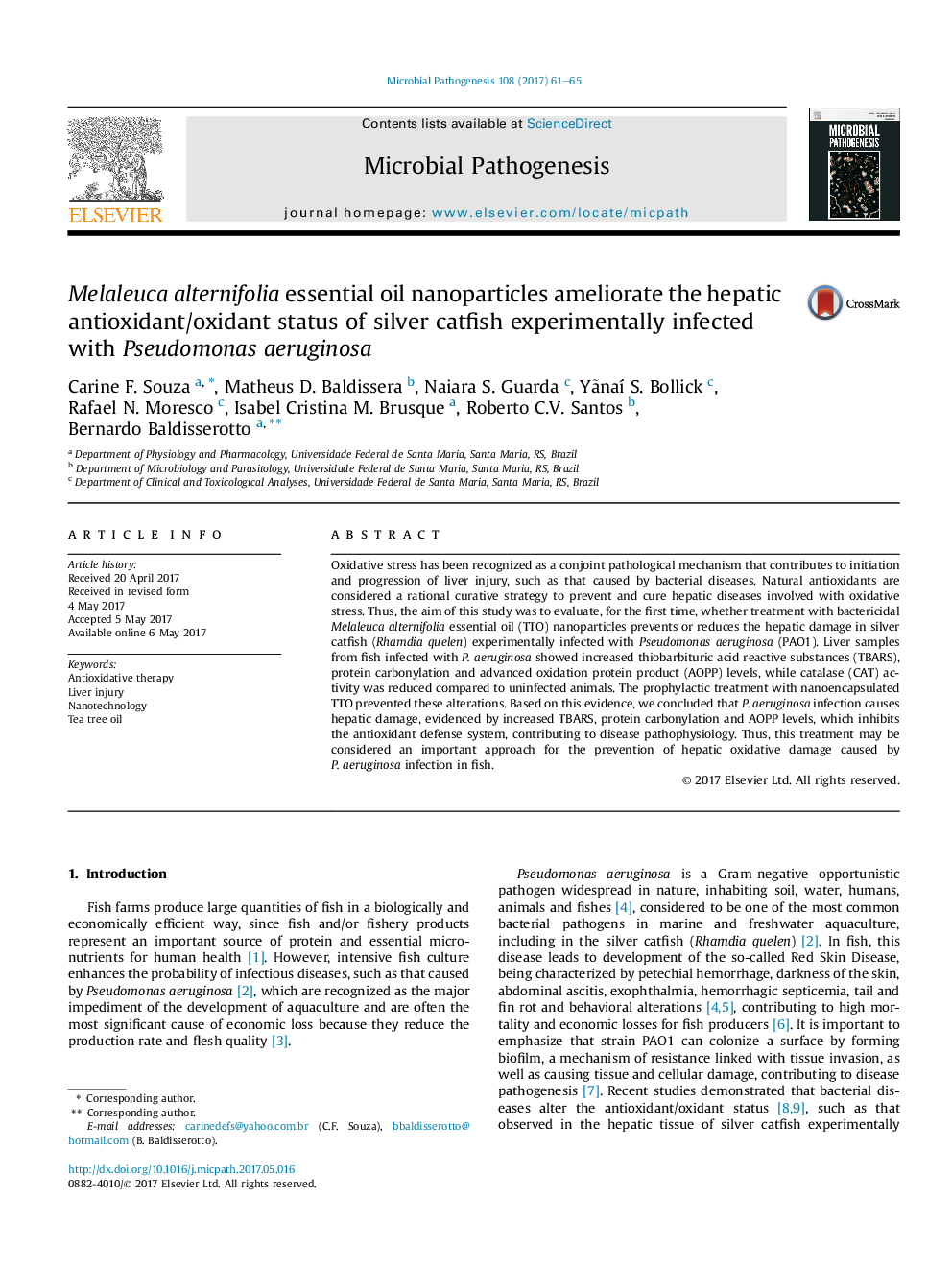| Article ID | Journal | Published Year | Pages | File Type |
|---|---|---|---|---|
| 5673754 | Microbial Pathogenesis | 2017 | 5 Pages |
â¢Oxidative stress is a mechanism that contributes to initiation of liver injury.â¢Melaleuca alternifolia loaded in nanoparticles prevents the hepatic oxidative damage.â¢M. alternifolia loaded in nanoparticles improve the hepatic antioxidant defense system.â¢This treatment may be considered an important approach to prevent the oxidative damage.
Oxidative stress has been recognized as a conjoint pathological mechanism that contributes to initiation and progression of liver injury, such as that caused by bacterial diseases. Natural antioxidants are considered a rational curative strategy to prevent and cure hepatic diseases involved with oxidative stress. Thus, the aim of this study was to evaluate, for the first time, whether treatment with bactericidal Melaleuca alternifolia essential oil (TTO) nanoparticles prevents or reduces the hepatic damage in silver catfish (Rhamdia quelen) experimentally infected with Pseudomonas aeruginosa (PAO1). Liver samples from fish infected with P. aeruginosa showed increased thiobarbituric acid reactive substances (TBARS), protein carbonylation and advanced oxidation protein product (AOPP) levels, while catalase (CAT) activity was reduced compared to uninfected animals. The prophylactic treatment with nanoencapsulated TTO prevented these alterations. Based on this evidence, we concluded that P. aeruginosa infection causes hepatic damage, evidenced by increased TBARS, protein carbonylation and AOPP levels, which inhibits the antioxidant defense system, contributing to disease pathophysiology. Thus, this treatment may be considered an important approach for the prevention of hepatic oxidative damage caused by P. aeruginosa infection in fish.
